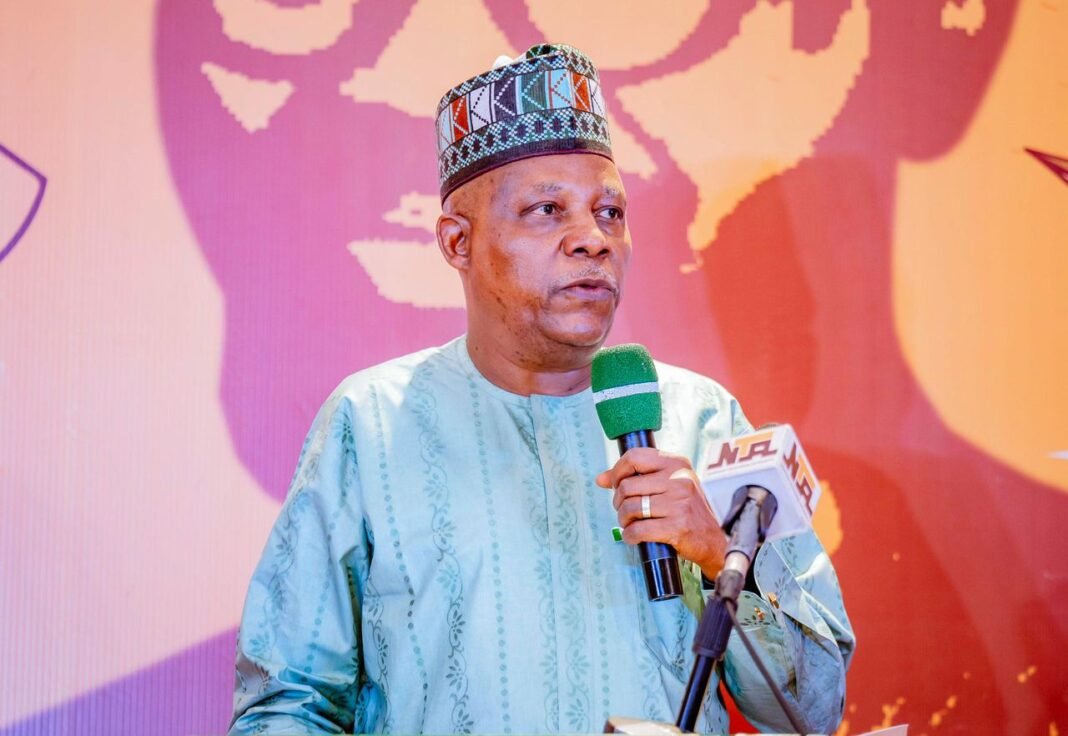Vice President Kashim Shettima has urged the governors of all 36 states to focus on the human capital development of their citizens, placing it above political concerns.
He made this call during a meeting of the Steering Committee for the Human Capital Development Programme at the State House in Abuja.
Shettima emphasized that Nigeria’s future in the 21st century will depend on the strength of its workforce, the education of its children, and the well-being of its communities.
He stated, “We must move beyond plans and policies. Implementation must be fast, targeted, and unwavering. The time for gradual changes is over; now is the time for bold and decisive action.”
Read Also: House Of Reps Committee Rejects 31 States Creation Proposal
He further stressed the need for governors and state representatives to prioritize the five key indicators identified for tracking progress in human capital development.
“Regular and structured meetings of State HCD Councils must be made essential, ensuring human capital development remains central to governance at all levels,” he added.
Shettima also pointed out that history would remember President Bola Ahmed Tinubu’s administration for choosing to prioritize people over politics, invest in capacity over convenience, and confront national challenges directly to build a prosperous nation.
The Vice President also discussed the progress made by the HCD Steering Committee, including its expansion to include key cross-cutting sectors, thereby strengthening governance structures.
He called for a nationwide survey to collect real-time data on critical indicators such as health, education, and workforce readiness.
He stressed that decisions should be based on data, stating, “We cannot solve what we do not measure. A nationwide survey must be commissioned to gather real-time data on health, education, and workforce readiness. A nation aspiring for greatness must base its policies on evidence, not assumptions.”
Shettima also emphasized the need to mobilize resources beyond government funding, stating that traditional financing models would not be enough. He urged the Private Sector Partnership Group to play a leading role in unlocking innovative financing options, such as impact investments and social impact bonds.
He called on development partners, corporate leaders, and philanthropic organizations to view human capital development as an investment in the nation’s economic prosperity, not charity.
Earlier, the Minister of Finance and Coordinating Minister for the Economy, Mr. Wale Edun, praised the HCD team for developing clear parameters for information and data collection, stressing that “economic expansion without human capital development is futile.” He added that with Africa’s growing young population, more attention should be given to creating an educated, skilled, and healthy population.
Also, Ms. Elsie Attafuah, the Country Representative of the United Nations Development Programme (UNDP), commended the federal government for prioritizing human capital development as the foundation for national progress. She highlighted various projects supporting this cause, including the Nigeria Jubilee Fellows Programme (NJFP) and the 3 Million Technical Talent (3MTT) programme. She noted that Nigeria’s future relies not on natural resources but on its human resources.
In her presentation, Ms. Rukaiya El-Rufai, Special Adviser to the President on the National Economic Council (NEC) and Climate Change, and Coordinator of the Core Working Group of HCD, reported that the team had redesigned the HCD governance structure, engaged stakeholders, administered an ECOWAS grant, and developed an HCD dashboard to track national progress in health, nutrition, education, and the labor force.




